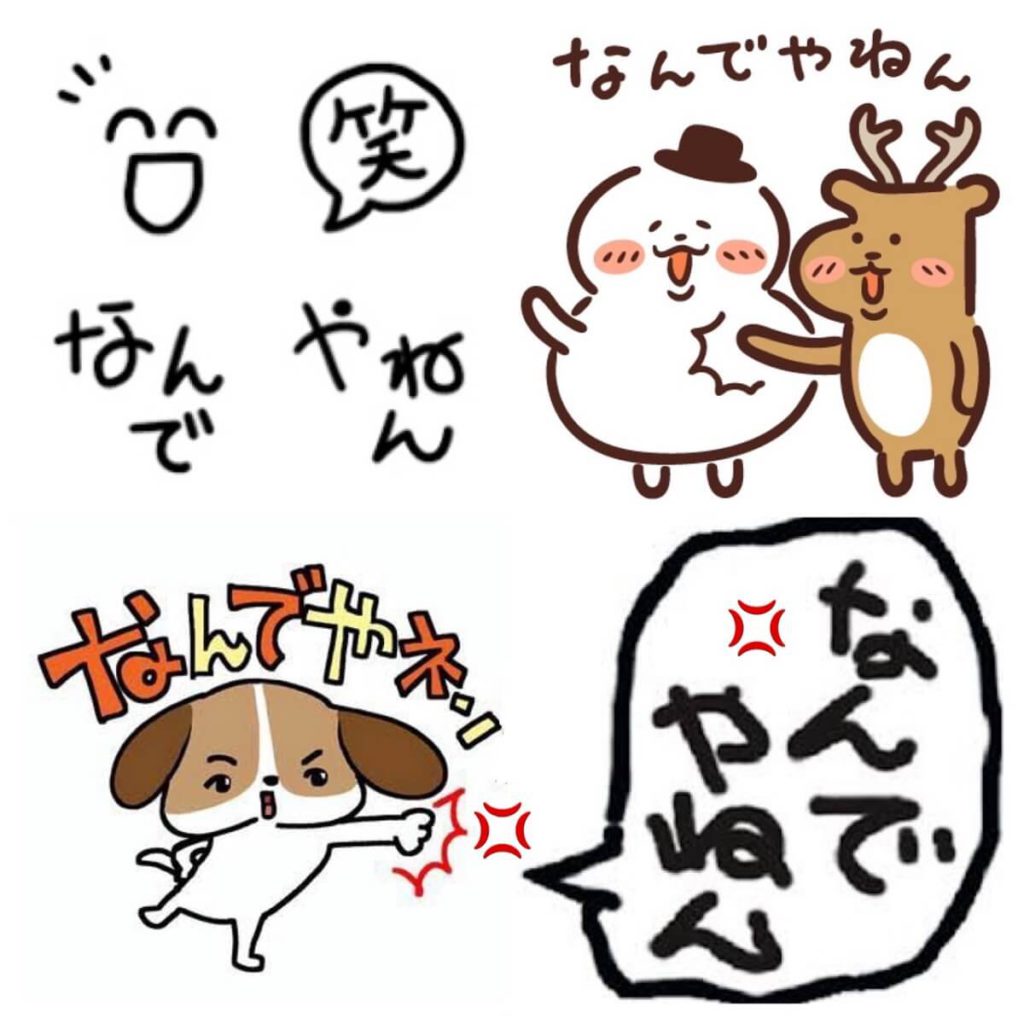Japan has many different dialects. One reason for this is that words originated in the capital or cultural centers and spread to the regions through transmission. This happened because the method of language transmission at that time was mainly on foot. As a result, words lost in the capital took root and were adopted in the countryside, leading to the development of various dialects.
Another significant factor is said to be the political system during the Edo period (1603-1868), which divided regions into autonomous domains called “han (藩),” leading to the use of different languages in each han (藩), resulting in language changes.
To be exact, there are “hougen (方言)” and “-ben (~弁).” “Hougen (方言)” refers to language systems with different phonetics, grammar, and vocabulary. There are said to be 16 recognized dialects in Japan. On the flip side, “-ben” simply means “the language spoken in this area.” Typically, it contains finer distinctions than dialects and is accompanied by the names of regions, prefectures, or cities, such as Kansai-ben or Osaka-ben.
For Japanese language learners, understanding the many dialects must be challenging. Even within a single dialect, there is a huge amount of cultural and social information. I live in Osaka, located in the Kansai area, and over several installments, I would like to write about the general rules for word endings in our casual dialect.
Let’s start with the representative word endings in the Osaka dialect: “NEN (ねん)” and “YANEN (やねん)”.
In casual spoken language and in the present tense, “yo (よ)” or “nda (んだ)” in standard Japanese is usually replaced with “nen(ねん).” Similarly, “nano (なの)” or “nanda (なんだ)” becomes “yanen (やねん).”
Let’s delve into detailed examples and quizzes to reinforce your comprehension.
Ready to explore more? Let’s dive in!

1. “YO (よ)” or “NDA (んだ)” → “NEN (ねん)”
Both “yo (よ)” and “nda (んだ)” are used in affirmative sentences in the present tense. In the Osaka dialect, both are expressed as “nen (ねん).” In standard Japanese, “nda (んだ)” is a little more explanatory than “yo (よ).”
Standard Japanese:
Regular: yo (よ)
A bit more explanatory: nda (んだ)
Osaka-ben:
Regular: nen (ねん)
If you want to talk in an explanatory way in the Osaka dialect (i.e., add a little nuance of explanation or justification to your statement), it’s a good idea to stress the syllable before “nen” with stronger emphasis.
There is another way you can a bit more of an explanatory tone to your Osaka-ben speech, which you’ll see at the end of this section… but first, let’s practice!
Now, let’s read the examples.

Got it?
Great!
Now, it’s practice time! Please come up with a phrase in the Osaka dialect for blanks A1 to A6.

A.1 Kowainen こわいねん
A.2 Kowainen こわいねん
A.3 Kawaiinen かわいいねん
A.4.Kawaiinen かわいいねん
A.5 Sugoinen すごいねん
A.5 Sugoinen すごいねん
How many questions did you get right?
Okay, remember when I said that there is another way to add a bit more explanatory nuance to your Osaka-ben? Here we are! For your reference, another option to make your speech sound even more explanatory is that you can also add “na (な)” after “nen (ねん)” and say “nen na (ねんな) ” flexibly, like “kowai nen na (こわいねんな).”
Standard Japanese:
Regular: yo (よ)
A bit more explanatory: nda (んだ)
Osaka-ben:
Regular: nen (ねん)
A bit more explanatory: nen na (ねんな)

2. “NANO (なの)” or “NANDA (なんだ)” → “YANEN (やねん)”
Both “nano (なの)” and “nanda (なんだ)” are used in affirmative sentences in the present tense. In the Osaka dialect, both are expressed as “yanen (やねん)”.
Let’s read these examples as well.

Now, let’s practice!

The answers are…
A.1 Shinsetsu yanen しんせつやねん
A.2 Shinsetsu yanen しんせつやねん
A.3 Tokui yanen とくいやねん
A.4 Tokui yanen とくいやねん
A.3 Nigate yanen にがてやねん
A.4 Nigate yanen にがてやねん
A.5 Byouki yanen びょうきやねん
A.6 Byouki yanen びょうきやねん
How was it? Was it too easy?
For these cases as well, you can add “na (な)” after “nen (ねん)” like “suki yanen na (すき やねん な)” for your preference.

3. Interrogative Word + “YANEN (やねん)?”
An interrogative word plus “nano (なの),” “nanda (なんだ),” or “yanen (やねん)” all become questions when the intonation is raised at the end of the phrase. The change in word endings is the same as in 2. The examples are as follows:

Now, here’s another question for you.
“Naze nano? (なぜなの?)” or “Nande nano? (なんでなの?)*2” means “why?” in English.
Do you know how to say it in the Osaka dialect? Take a guess!
The answer is … “Nande yanen!?(なんでやねん!?)” !!
The phrase “Nande yanen? (なんでやねん?)” actually carries literal meanings like “Why are you doing this?” or “How did this happen?” but Osakan people often say it just like “No way!”. So even when they say “Nande yanen? (なんでやねん?)”, in many cases, they are not necessarily asking for the actual reason. It’s often just used to express curiosity or surprise. In addition, “Nande yanen? (なんでやねん?)” is used to gently point out someone’s mistake with affection. If they say it with a laugh, you can join the big laughter. However, if your boss at work shouts it at you in an angry tone, you should fix the mistake immediately because they are mad at you! The key is their intonation.

Lastly, I volunteer to teach Japanese to foreigners once a week. One day, one of our students said that the Osaka dialect was challenging for her, even though she had passed Level 1 of the Japanese Language Proficiency Test (JLPT). Her comment surprised me, since Level 1 is the highest possible score of the JLPT (out of 5 possible ratings) and indicates a high level of proficiency suitable for business and academic activities. Her struggle is what prompted me to write this article.
The Osaka dialect is an interesting and friendly form of the Japanese language with its own beautiful history and unique personality. I hope this article will help foreign residents in Osaka and surrounding areas to enjoy our dialect!
In my next article, I’ll explore 「てん」(ten) related forms of the Osaka dialect. See you next time!
———————————
*1 The Japanese word for “what” is “なに” (nani), but when the following word starts with the sounds “d,” “t,” or “n,” it is pronounced as “なん” (nan), such as “なんで” (nande).*2 “Nande (なんで) covers “naze (なぜ)” usage in a strong way.
I live in Osaka and teach Japanese as a volunteer. My dream is to live in Malta, an island country in the Mediterranean, after retirement.





 HTJ has a YouTube page! Check it out
HTJ has a YouTube page! Check it out